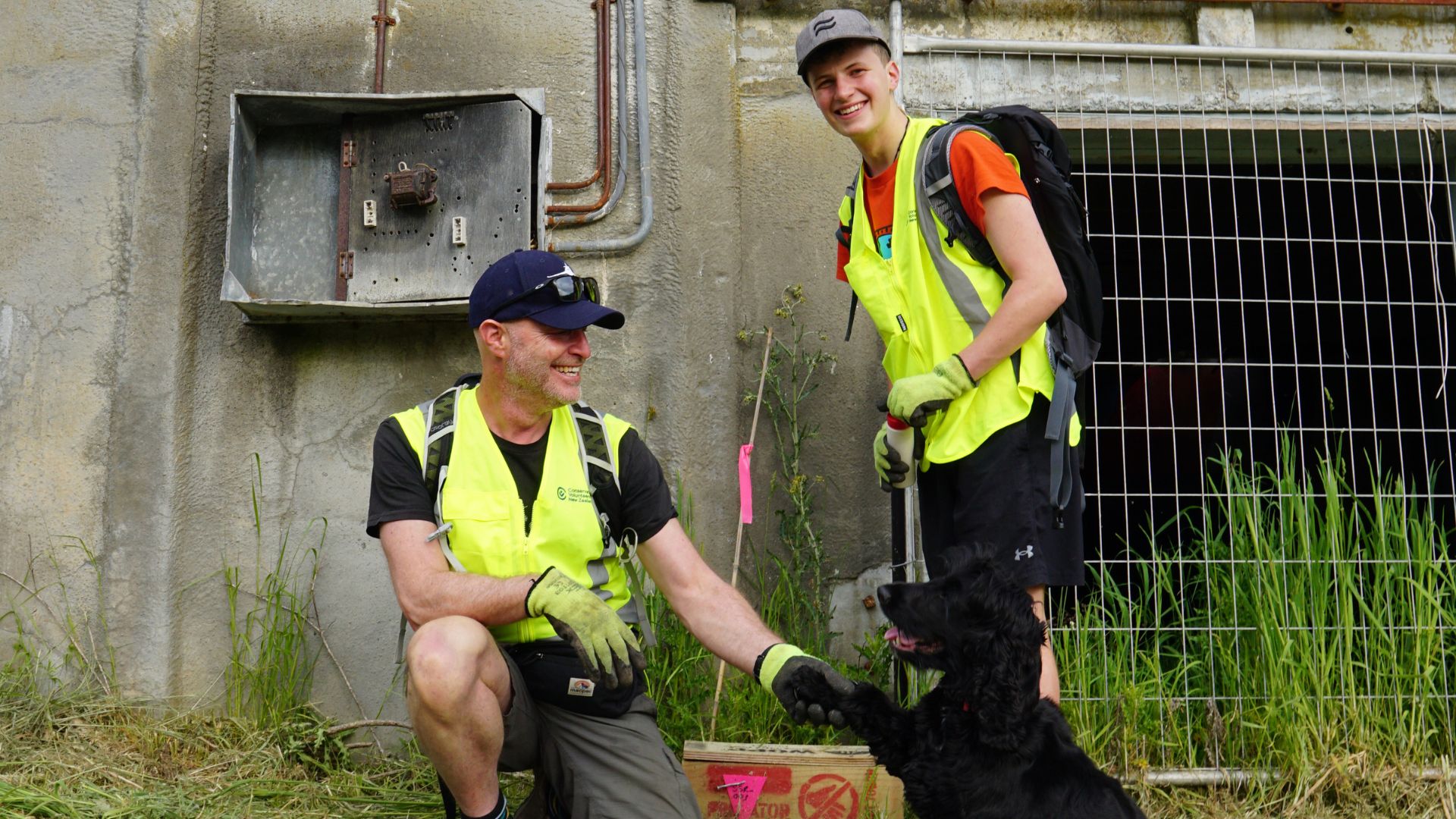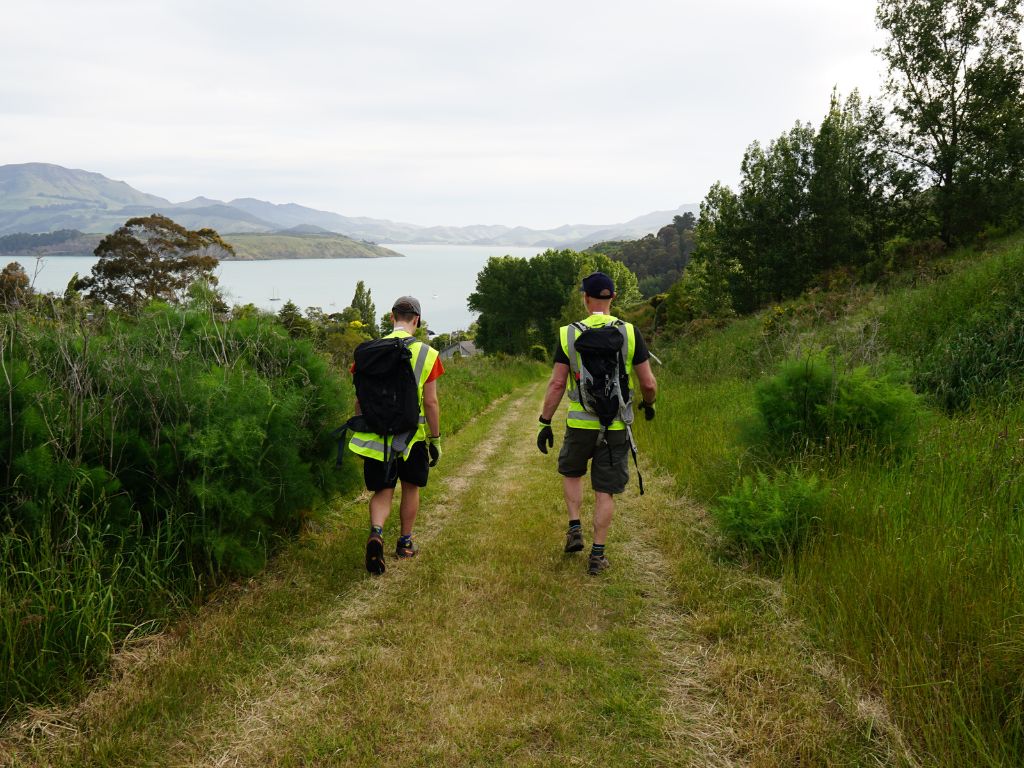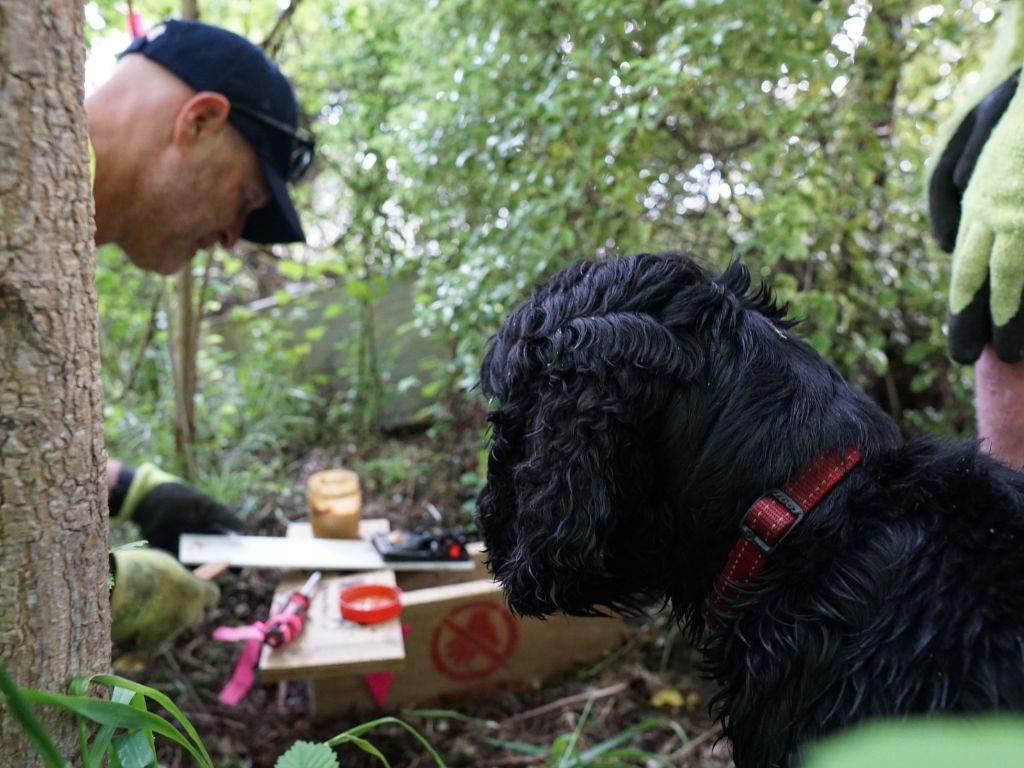In Lyttelton Harbour, a story of family, nature, and the bond between a father, his son, and their furry companion unfolds. A story so sweet it should be the premise for a feel-good Disney movie.

Gary Freedman, son Tom and cocker spaniel Arnie are a great trapping team.
Arnie races off to check the traps – “he lets us know if there’s something in there,” Gary says. If the trap caught something, father and son have developed an easy routine, sharing their jobs.
Gary reckons, “It’s really handy with two because it makes everything a bit quicker.”
The trio are members of a new community trapping initiative throughout the parks and trails of Whakaraupō Lyttleton Harbour, Whaka-Ora Pest Project (WOPP).
“One of us can do the trap, and the other person can be on the app, logging the catch on TrapNZ. By yourself, you have to take the gloves off, get into computer mode, and then flip back to nature.”
Tom is so fast at logging the catches that Gary often barely notices him doing it. Gary reckons that without Tom, he would probably forget to record the catches on TrapNZ.
They’ve recorded excellent results so far.
“It’s really satisfying when you get something,” Tom says. “You know you’re doing it well, and it’s working.”
Tom had a message for rangatahi throughout Aotearoa: “I urge everyone – especially young people – to do something like this because it feels so good.

The world so often feels a little hopeless with climate change and everything that’s happening in the world. But these things on a local scale can make such a difference.”
In it for the ecosystem
Joining WOPPers was a no-brainer for Gary. He works in sustainability and has even brought in and piloted the country’s first fully electric aeroplane. Over the past five years, the Freedman family have helped replant the Steadfast Reserve above Cass Bay in native trees (organised by the Cass Bay Reserves Committee). What was once a weedy stream trickling down a grassy valley is now filled with head-high native trees.
“All of these trees you see here are the riparian planting we’ve planted over the last two or three years. We’re so proud of how this has come up – it’s phenomenal.”
To protect the plants and encourage native species to come back, Gary knew the community would need to start trapping in the reserve. So, when he ran into WOPP coordinator Katie Dunlop while walking Arnie, it didn’t take a lot of persuasion to sign up as a local trapper.
His son Tom was immediately keen to help.
“I’ve been involved with the sustainability council at school for a while, and we do a bit of trapping,” he says. “But it’s awesome to do it in your own backyard.” Tom loves seeing all the birds that have returned to the valley: “It does feel like there are more birds here since the planting, and we need to protect them.”
WOPP – more than a catchy name

WOPP works in council parks and reserves to support the extensive mahi already being done by Predator Free Port Hills. They’re also tackling invasive plant species in the harbour to ensure native plants and animals can thrive.
The WOPP community trapping project took months of careful planning and research. “We started monitoring for pests in January 2023 and collated that data to identify where the hotspots are,” coordinator Katie says.
In October, she ran a series of information evenings for the locals who had signed up to become community trappers.
All this planning has paid off. Gary and Tom have been impressed by the resources provided by WOPP for the volunteers.
“Tom and I went along to the training, and we learned how the different traps worked and some of the reasons we’re trapping. It was really useful,” Gary says.
Each ‘WOPPer’ gets a backpack, a handbook detailing safe trapping techniques, a high-vis vest, a hip pack, and all the little bits and pieces needed to clean, service and change out baits in the various traps.
“WOPP has been able to learn from all the years of experience that other predator control groups have built up throughout the country,” Katie says. “We don’t have to reinvent the wheel.”
Get involved!
Live local? Become a WOPPer! Contact Katie on [email protected]. If you don’t live in Whakaraupō, many community groups throughout the motu do amazing mahi to protect our native flora and fauna. Check this map to find a group near you.

